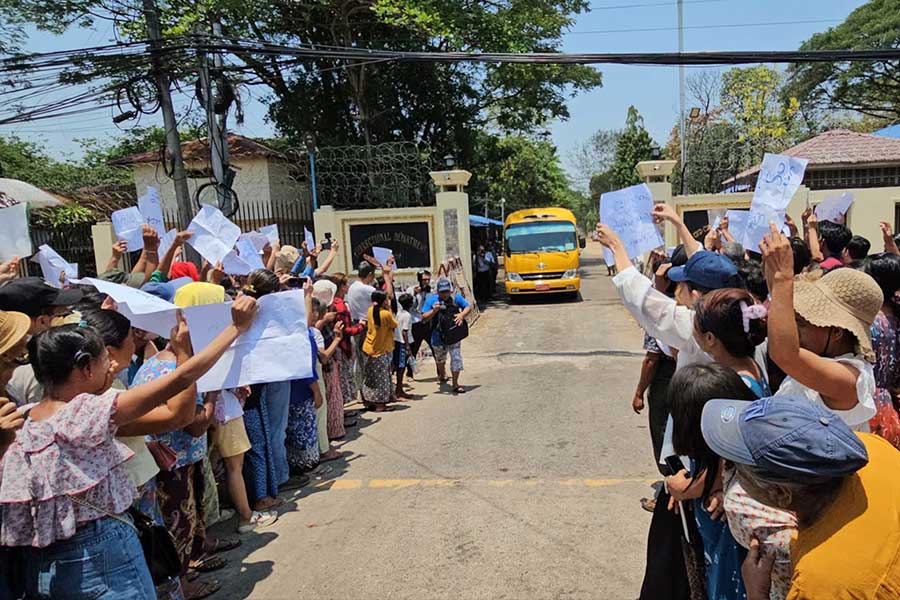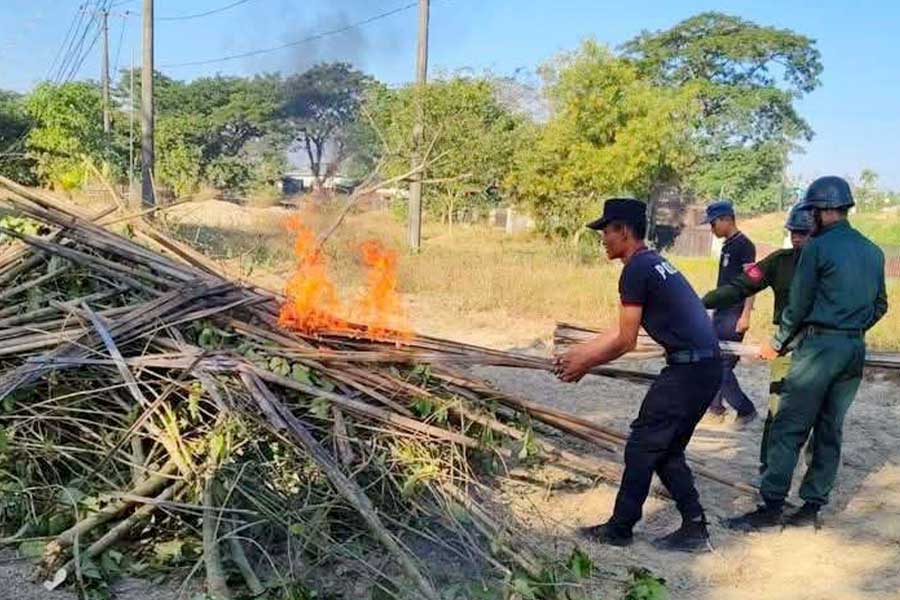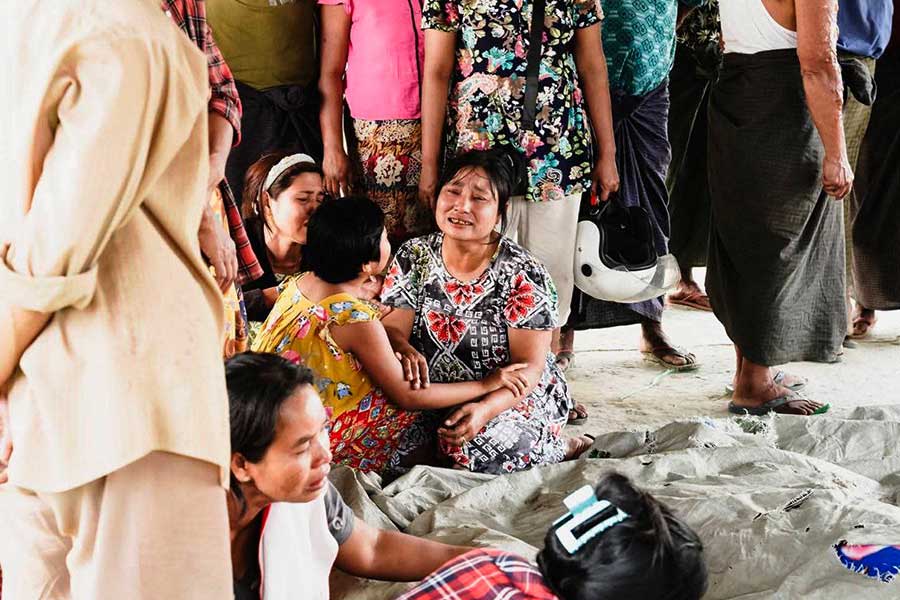- Weekly Highlights from Arakan (Feb 23 to March 1, 2026)
- Over 300 political prisoners freed from 10 prisons nationwide
- DMG Editorial: Between War and Opportunity - A New Border Reality for Bangladesh and Arakan
- Arakan Army sets five-year prison term for kratom cultivation in controlled areas
- Junta airstrikes kill over 25, including Arakanese merchants, in Mindon Twsp
Cargo workers struggle to survive months-long closure of Sittwe border trade camp
With border trade with Bangladesh suspended due to COVID-19 five months ago and likely to remain that way indefinitely, workers who had depended on such transnational commerce for their livelihoods are struggling to make ends meet.
27 Nov 2020
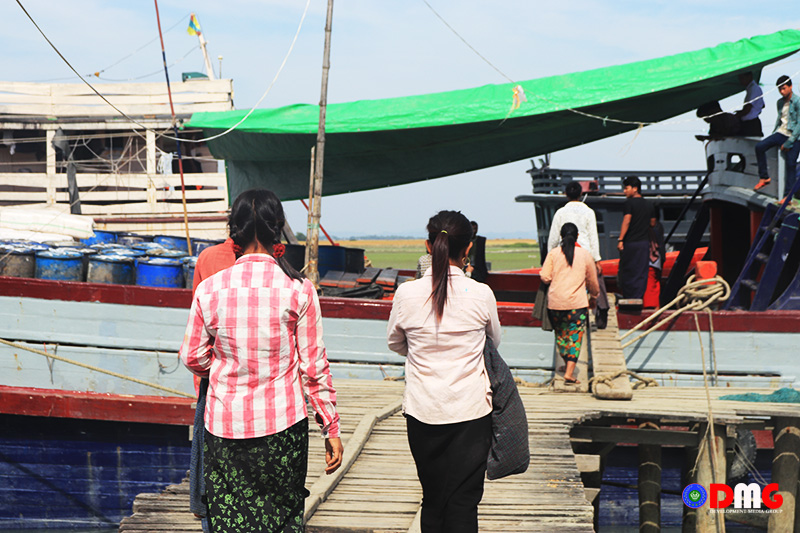
Mrat Swe | DMG
27 November 2020, Sittwe
With border trade with Bangladesh suspended due to COVID-19 five months ago and likely to remain that way indefinitely, workers who had depended on such transnational commerce for their livelihoods are struggling to make ends meet.
Daw Moe Nat San, a cargo worker, said that due to the closure of the Bangladesh-Sittwe and Sittwe-Maungdaw border trade routes, people like her were no longer able to get steady employment and were forced to find other, less desirable work.
“We work hard, but our wages are not good enough for us. We face livelihood hardships because our expenditure is much bigger than our income. Everyone in our house has to go out and work,” she said.
Bilateral border trade with Bangladesh was suspended in late June after a coronavirus case was reported in the Arakan State capital Sittwe. The infected patient had returned from Bangladesh via a trade ship commuting between Bangladesh and Sittwe.
A resident of Chaungnwe Mingan village in Sittwe Township, Daw Moe Nat San has been a cargo worker at the Sittwe border trade centre for more than a decade.
“Due to the pandemic, the routes were closed and the work was not steady. We face livelihood difficulties due to the job layoffs. We have no jobs, but on the other hand, commodity prices are skyrocketing. We are not comfortable with the rising commodity prices, as wages are only K4,000 or K5,000 per day,” she explained.
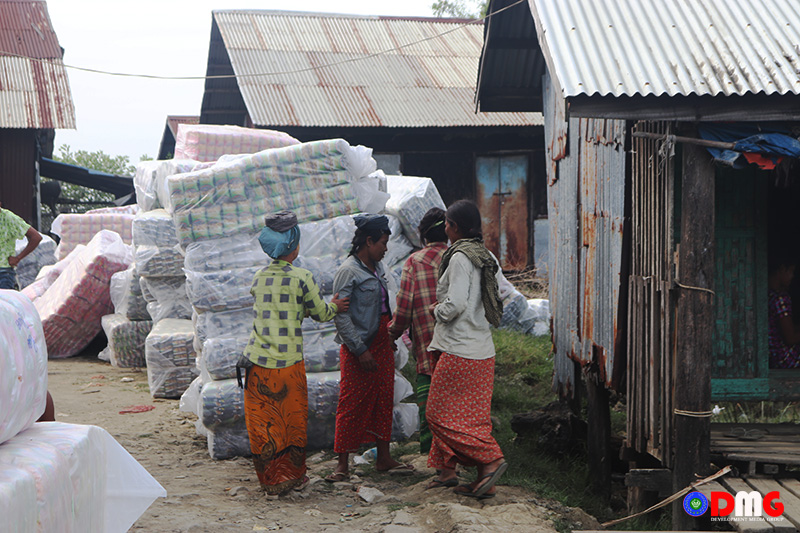
Despite closure of the border trade routes, cargo ships and boats from Yangon sometimes arrive, according to cargo workers, who say they have to work on a rotating basis — sometimes just once a month — due to the large number of employees seeking wages.
“I’ll have to wait about a month to do this job again as a result of the pandemic. If I do it today, someone else will do it the next day,” said Ma Than Ngwe, another cargo worker. “I get about K5,000 a day to buy fish and vegetables, which is not enough for our family.”
In the past, before the border trade shut down, a typical worker earned more than K10,000 per day for regular work.
Currently, some cargo workers take odd-jobs where they can find them, such as masonry in the nearby communities.
“We earn about K5,000 from working as masons in the villages and we are very tired of doing this job. We have to do alternative jobs due to lack of regular [cargo] work,” Ma Than Ngwe said.
There are more than 500 workers at Shwe Min Gan Jetty, where the Sittwe border trade post is located, and more than 300 workers are mainly engaged in the border trade.
The cargo workers had been reliant on the business dealings of Danyawaddy Ngwe Tin Pyae Company, Mar City Company and Triple T Company, which import and export goods between the two countries, according to a border trade camp official.
U Kan Gyi, manager of Danyawaddy Ngwe Tin Pyae Company, said businesses like his are facing financial difficulties due to the inability to operate ships.
“The trading companies also have financial difficulties. We have to build warehouses and jetties for cargo boats to dock at. The companies have to pay taxes on the warehouse and jetties. It is not a problem when the business is operating, but when it is not operating, the rich also have problems. The rich also have a problem because they have to pay their employees despite their unemployment,” he said.
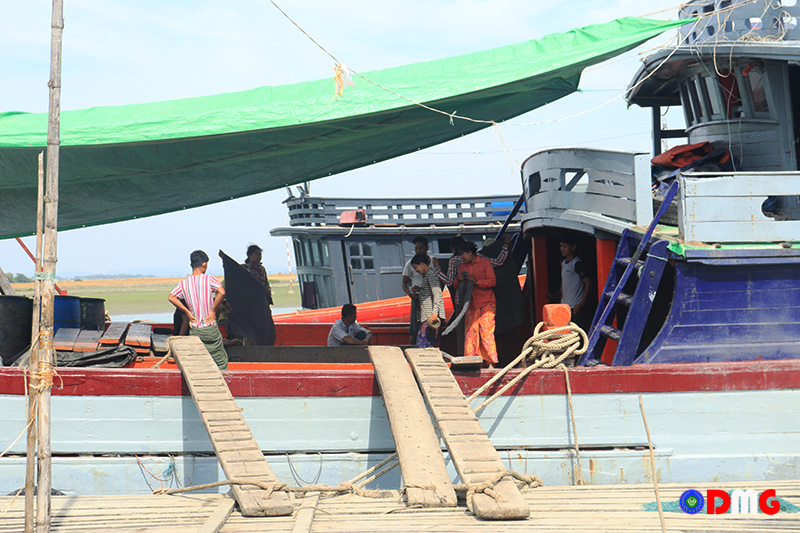
There are also some labourers from other Arakan State townships at the Sittwe border trade camp. U Kyaw Hlaing from Aungzeya village, Ponnagyun Township, hopes border trade resumes as soon as possible to make life easier for workers.
“When the border trade was open, I used to earn about K10,000 a day, but now it is closed and I can’t get a penny. If you look for another job, you will not earn more than K5,000 a day. We want the border trade to reopen as soon as possible because our jobs are not good,” he said.
Since the border trade routes were closed in late June, the COVID-19 situation has become significantly worse: Arakan State continues to see rising infections following an outbreak in mid-August that prompted lockdowns and school closures.




